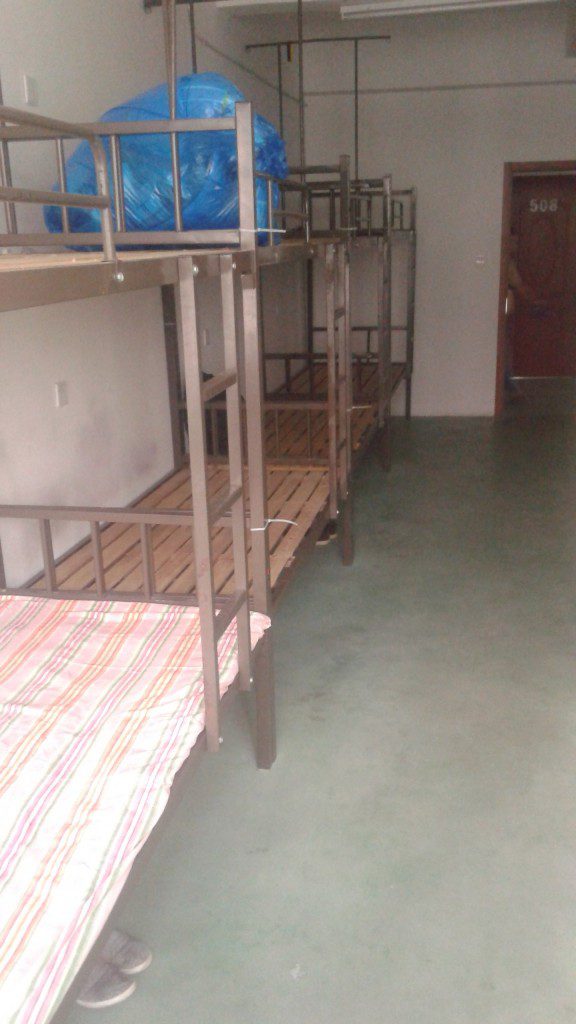Apple’s iPhones are perhaps America’s most recognizable export to the world. They’re ubiquitous from New York to New Zealand, and carry the message of Apple’s ingenuity far and wide. Apple has also built a cult following for itself, with its minimalistic ads, its keynotes, and the legend of Steve Jobs. But while Apple might be headquartered in California, these phones are manufactured an entire world away — in distant China.
NYU grad student Dejian Zeng wanted to find out how Apple really manufactures its iPhones, and decided to do it in the most hands-on way possible — by getting into an Apple factory himself. Apple contracts out the manufacture of its iPhones to a company called Pegatron, and Zeng decided to go undercover as a Pegatron employee to experience first-hand what goes into making an iPhone. Here’s how Zeng earned $450 a month while repeatedly putting on a screw of the iPhone for 1.5 months.

The selection process
One of Pegatron facilities is located on the outskirts of Shanghai, and getting a job there isn’t hard. The only criterion, Zeng said, was the you have all your fingers, and you’re familiar with the English alphabet. The factory workers need to often put together small parts, so being in possession of your digits is important, and workers need the English alphabet because the assembly lines have English numberings. The facility has over 1 lakh employees, and churn rates are high, so they’re always on the lookout for new workers.
The Average Day
While getting to work at an Apple factory to assemble yet-unreleased phones might sound exciting, Zeng’s job description wasn’t particularly fancy – he was in charge of one screw on the iPhone. “What I did is that I put the sticker on the case and I put a screw on it. The [iPhone] housing – we call it the back case – is moving on the assembly line and that’s when we pick it up and now we get one screw from the screw feeder and then we put it on the iPhone and then put it back and it goes to next station.”
And he did that day in, day out. The factory workers operate in shifts. Zeng’shift began at 8:30 am. Workers sleep in shared dorms which are located 10 minutes away from the factory, and Zeng shared his dorm with seven other workers. The company provides workers with shuttle buses to travel to and fro from the factory.

He’d work for two straight hours putting the screw on the iPhone. “The first couple of days you’re very concentrated, because you couldn’t catch up the speed of the assembly line. You need to be very quick to catch up. So you’re very, very focused. It makes you very tired but it keeps your mind on it. You have no time to think about things. I need to get quicker and quicker,” he says. After roughly two hours he’d have a 10 minute break. Some people tried to catch sleep in the break, while others went to the restroom.
After another two hours of work, the employees would break for lunch. Pegatron provides lunch in its large canteens, where workers can buy their food. “Generally there are vegetable, meats, and sometimes it’s like buns or noodles and then basically it’s like three vegetable, one meat, with rice. That’s generally a meal,” he said. The meals cost anywhere between 4-10 yuan (Rs. 40-100).
Some people tried to sleep during lunch, but it was frowned upon. Workers could sit up straight on chairs and sleep, but weren’t allowed to lie down. If they did, authorities would swipe their IDs and make a record. If this happened multiple times, they had money deducted from their salaries.
The Pay
Zeng made $450 (Rs. 30,000) a month while working at Pegatron. It required him to work for 60 hours a week, including overtime. The money doesn’t go very far in China, says Zeng. Most workers at the factory don’t look at this job as a career, but a way to earn some money. Some of the workers have just arrived from a village with no money, and look at this to set themselves up in the city. “People working the factories are also working on becoming a security guard, delivery man, housekeeper. So it’s the same kind of level of position,” says Zeng.
Security
The factory deals with yet-unreleased iPhones that the tech press would give their kidneys to get a glimpse of, so Pegatron is serious about security. Even with thousands of workers having access to the latest devices, leaks are few and far between. No cell phones are permitted on the premises, and workers must go through metal detectors before they enter. Security measures are even stricter when a new phone is releasing. “They increased the sensitivity of the metal detectors.So you know some girls they have bras? And so they couldn’t pass the door because they had the metal in the bra. And so a lot of the girls had to change all of the sudden that day because they increased the sensitivity,” says Zeng.
Workers don’t talk much to each other at the plant. We’re only allowed to converse in low voices with the people next to our stations, said Zeng. He did make friends with his dorm mates, but between the factory and the on campus housing, the job is all-pervasive. “I don’t think you give workers enough time to do other stuff. The time left in your life is very, very limited. It’s just a couple of hours. And then there’s not much you can do,” he says. And can the workers themselves buy the iPhones they work so hard to make? “Not very many because of the monthly wage,” says Zeng. “The phones they generally use are Chinese productions like Oppo or something like that.”